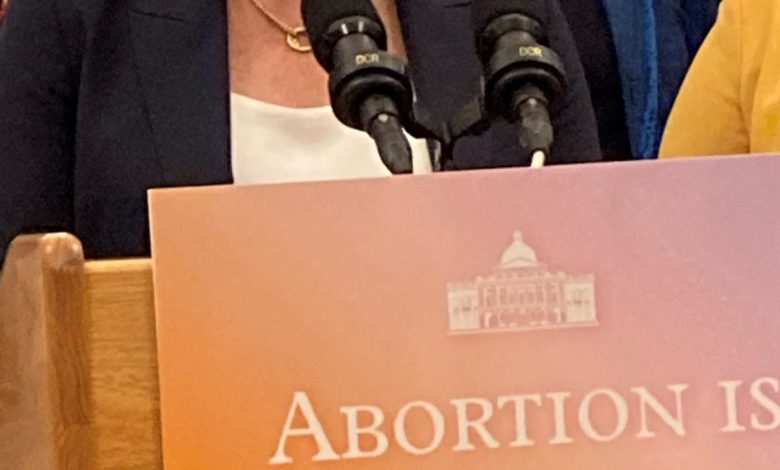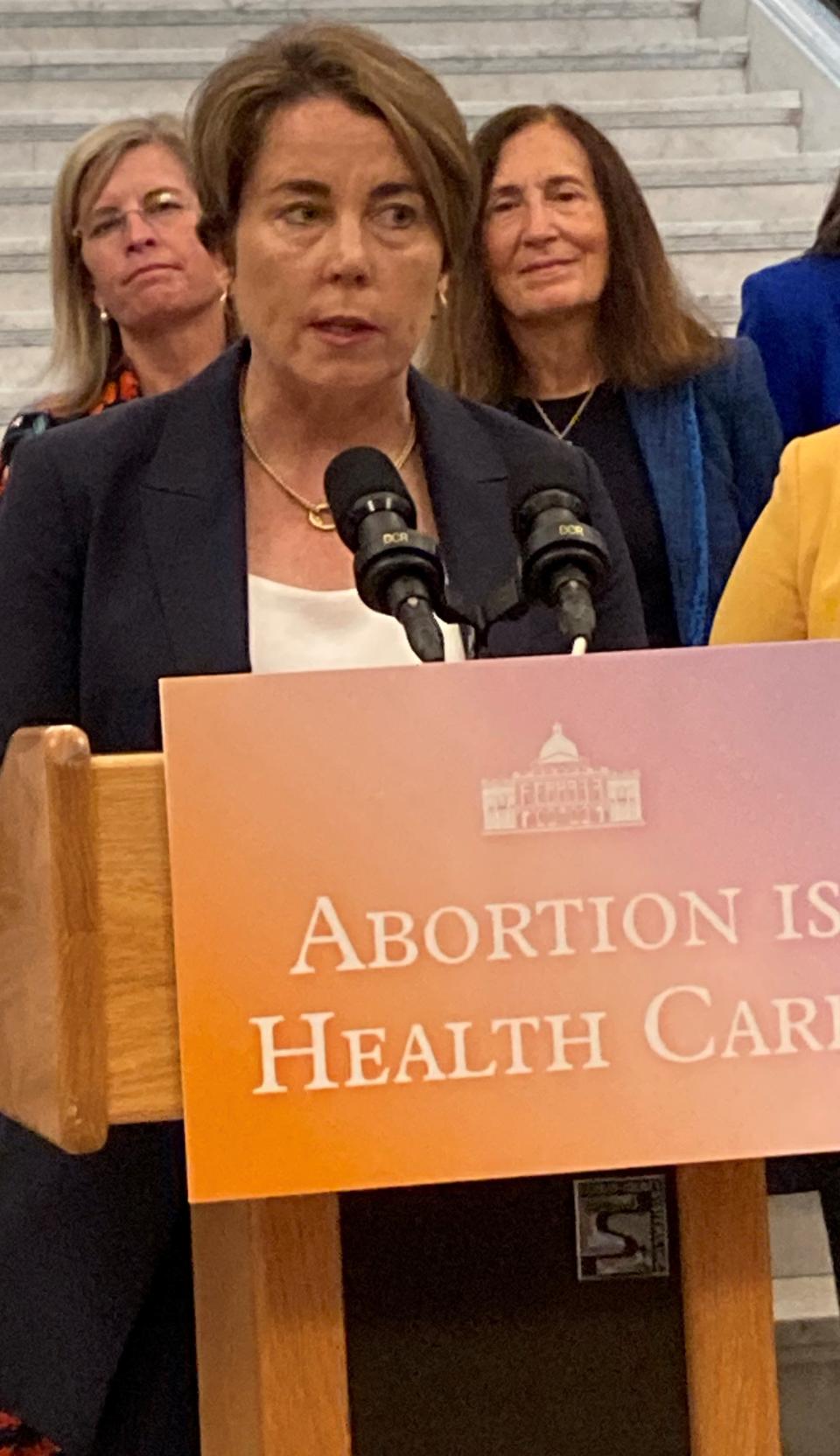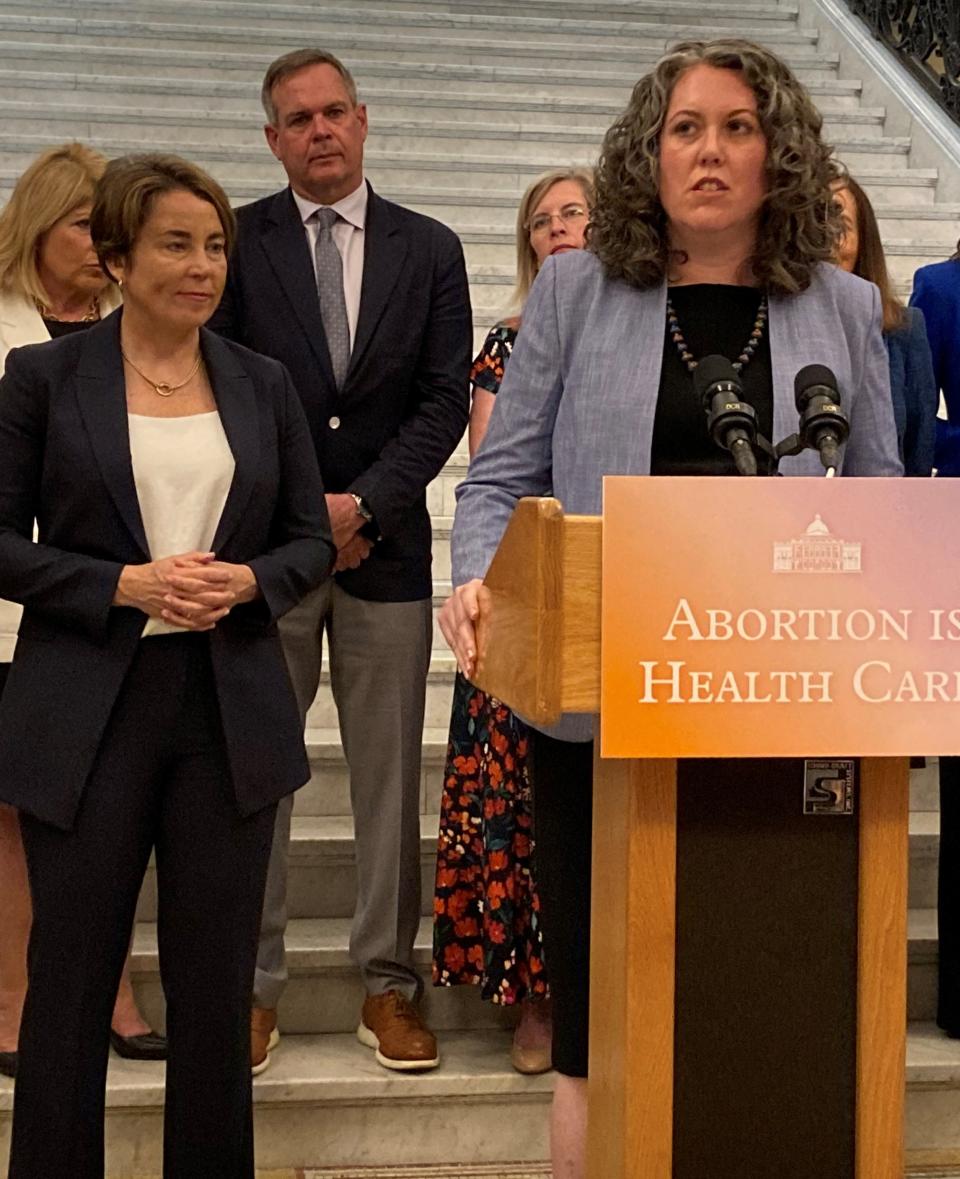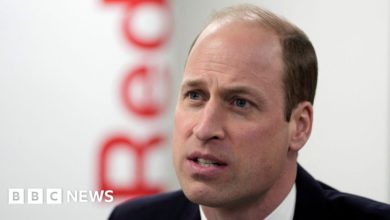Gov. Maura Healey acts to ensure access to abortion in Mass.

BOSTON ― Taking a proactive step in light of an anticipated Supreme Court ruling in a case regarding emergency abortion care, Massachusetts Gov. Maura T. Healey Monday issued an executive order that she said established the state as a “beacon” for reproductive rights.


Flanked by representatives from the health care industry, insurance providers, legislators, state health-related agencies and advocates, Healey said that women in Massachusetts and those traveling to the state will “always have access to emergency life-saving care,” including abortion care.
In essence, the order puts the state’s insurance industry, emergency medical providers, health care providers and state agencies on notice that such emergency medical treatment is available on demand.
“In this building, we are showing unity on this issue,” Healey declared. “Today we make clear a women’s choice. Her reproductive choices are hers. There is no question they are defended in Massachusetts.”
The Supreme Court is expected to rule soon on two cases, Idaho v. United States and Moyle v. United States, that deal with Idaho’s near-total abortion ban and whether it conflicts with federal law.
“The Supreme Court is to decide whether people with pregnancy complications should be allowed to live,” said Rebecca Hart Holden, president of Reproductive Equity Now.


“We have to be prepared, be ready and make clear what the law is in Massachusetts,” Healey said.
Massachusetts has already codified a woman’s right to abortion, which is legal in the state up to 24 weeks (later abortions are decided on a case-by-case basis). Following the 2022 Supreme Court decision overturning Roe v. Wade, the state passed a shield law designed to protect patients and providers from criminal prosecution and lawsuits under other states’ abortion restrictions.
A Department of Public Health study indicates a 37% increase in demand for reproductive care services since June 24, 2022, according to Reproductive Equity Now. Massachusetts providers are also leading sources of telehealth abortion care and have sent thousands of doses of Mifepristone to states that restrict or ban abortions.
The state has a stockpile of the medication, purchased in the wake of the Dobbs decision. That stockpile, 15,000 doses, is not being distributed outside of the state.
“We will continue to keep those for us; I don’t trust what the Supreme Court, the Department of Justice or others will do,” Healey said.
“The issue is clear. The Supreme Court, federal courts and state legislators are taking on abortion, IVF (invitro-fertilization) and contraception; the beat goes on and on and on,” Healey said, explaining that her action Monday offers clear guidance on Massachusetts law.
Providers have said they are afraid to travel to other states, that they will be detained, interrogated and investigated for their role in providing abortions to patients from other states, Healey said.
“Abortion bans in other states impact Massachusetts,” Healey said. Local health care providers are seeing increases in their patient loads, she said, and other states’ abortion restrictions have pushed women past early termination windows when abortions are safer and less expensive.
“There are many reasons women need abortions,” Healey said — they have miscarriages, they suffer life-threatening conditions like ectopic pregnancies and preeclampsia that require a rapid response. “Early interventions are safer, more effective and do not pose as great a risk to women.”
Earlier in June, Healey announced a public education campaign targeting so-called “crisis pregnancy centers.” The campaign includes a hotline that directs residents to certified health care providers.
This article originally appeared on Telegram & Gazette: Gov. Maura Healey acts to ensure access to abortion in Mass.
Source link




